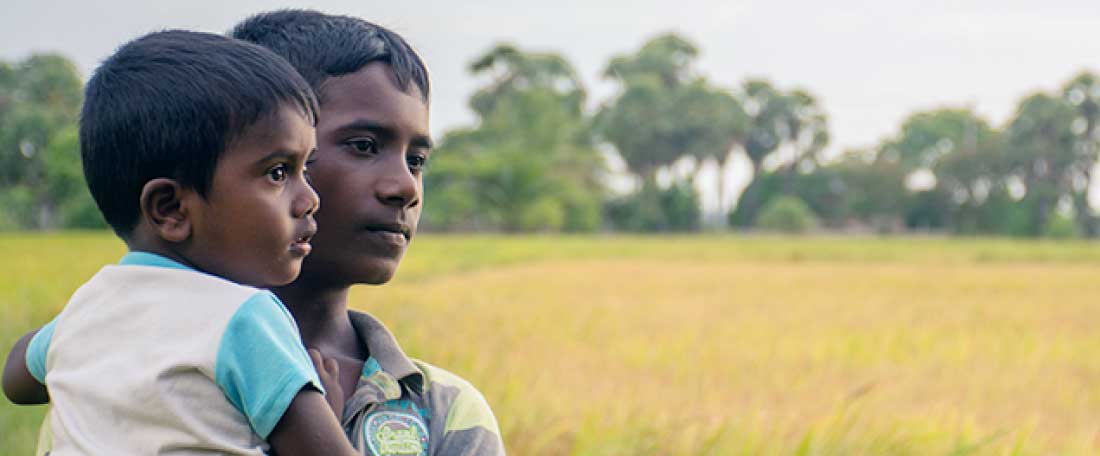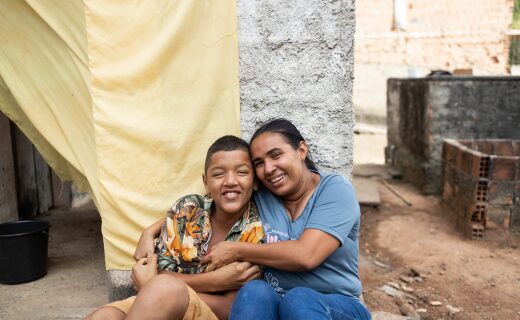Economic Crisis in Sri Lanka
Driven by multiple factors, in part exacerbated by the pandemic and resulting tourism losses, Sri Lanka is facing its worst economic crisis since 1948. The nation has experienced a 70% drop in foreign exchange reserves since January 2020 and the lowest foreign exchange rate for the Sri Lankan rupee in a decade. Headline inflation has increased to 17.5%, resulting in protests and civil unrest directed at the government.
Food, medicine, and fuel are difficult and expensive to acquire, and power cuts are becoming more severe with seven to ten hours (or more) without power. Many can no longer afford essential goods, and due to policy changes and importation challenges, the country is experiencing a resource shortage.
We'd love you to pray with us
Please pray for a swift end to this crisis, for the Sri Lankan economy to stabilise, and for minimal impact on children and families.
Please join us in prayer for the following:
- Pray for children and their families.
- Pray that families would be able to access essential resources, such as food, medicine, and fuel. Pray for the protection of children during this time of crisis.
- Pray against the rise of child labour.
- Pray for Compassion's operations.
- Pray that the national office in Sri Lanka will be able to continue to carry out work.
- Pray against disruptions and infrastructure outages.
- Pray for Compassion's local partners.
- Pray that our projects will still be able to access funds and resources and support families and their local community.
- Pray for frontline partner staff and volunteers as they experience additional stressors and demands.
- Pray for Compassion's staff. Pray that staff and their families would be able to acquire essential goods.
- Pray against anxiety, fear, and stress due to resource shortages and power outages.
Below we answer some questions you may have.
How is the crisis in Sri Lanka impacting children and their families?
The crisis has increased pandemic hardships for Sri Lankans and has caused a humanitarian crisis: many can no longer afford essential goods. Due to policy changes and importation challenges, the country is experiencing a resource shortage. Food, medicine, and fuel are difficult to acquire, and power cuts are becoming more severe with periods of seven to ten hours (or more) without power. Banking access could become problematic, and many vendors may require cash payments. Many families' income can no longer support their needs due to sharp inflation, and there is a concern for increased child protection issues and possible increases in child labour.
How is the crisis in Sri Lanka impacting Compassion?
Compassion is still assessing how this crisis may impact our programme, our operations, the children and young people we serve and their families, our national office staff and their families, and our local partners (projects). A crisis management team has been formed to plan, address, or mitigate impacts where possible, and we are developing our response plan based on the findings of this team.
How is the crisis impacting Compassion staff?
Like our local partners and programme participant families, our staff and their extended families are experiencing higher levels of anxiety and difficulty acquiring essential goods and resources due to inflation and supply chain issues. Food, medicine, and fuel are difficult to obtain, and power cuts are becoming more severe with periods of seven to ten (or more) hours without power. Banking access could become problematic, and many vendors may require cash payments.
How is Compassion responding to the crisis in Sri Lanka?
A crisis management team has been formed to plan, address, or mitigate impacts where possible. The team has identified four focus areas in which we may be able to reduce the impact of the crisis:
• Compassion operations
• financial impacts
• resource scarcity
• individual well-being
Is my sponsored child ok?
If you sponsor a child, they're still attending their local Compassion project in Sri Lanka and still receiving the benefits of our child development programme. The project is maintaining communication with your sponsored child and their family. It remains best placed to assess their needs and determine how to respond to those needs. Compassion's child protection specialists in Sri Lanka have also been trained to monitor, identify, and address your sponsored child's emotional, physical, and spiritual needs.
Are my sponsorship funds still making it to my sponsored child through their project?
Yes. At this time, we've not experienced any interruptions in our ability to provide funding to our local partners.
Can I send letters or a monetary gift to my sponsored child?
At this time, we've not experienced any interruptions in our ability to deliver letters or monetary gifts, so please keep writing. Your sponsored child will value your encouragement and love. However, it is possible that in the days and weeks to come, the crisis will impact our local partners' ability to operate as expected; if this happens, we'll contact sponsors to explain these impacts.
Will I still receive letters from my sponsored child?
At this time, we've not experienced severe interruptions in our ability to deliver child letters to sponsors, but owing to regular power cuts, there may be some delay in processing letters. It's possible that in the days and weeks to come, the crisis will impact our local partners' ability to operate as expected (like letter-writing); if this happens, we'll contact sponsors to explain these impacts.
Will this crisis have a long-term impact?
The World Bank estimates that 500,000 people have fallen below the poverty line since the start of the pandemic. This equates to five years of progress in the fight against poverty being lost. This crisis will only exacerbate additional setbacks in the fight against poverty.
We understand you may have further questions. Please do call our friendly team on 01932 836490 if you have any questions or concerns. We'd love to help.
Our phone lines are open from 9:30am – 6pm, Monday to Thursday and 9:30am - 5pm on Friday.




